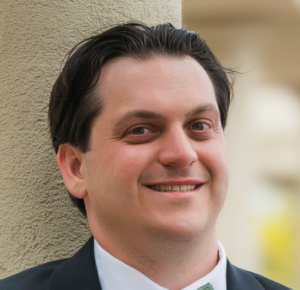
Building strong and healthy communities is a rewarding job, but it can be challenging.
Leave it to an engineer to help navigate through the various layers of politics and bureaucracy.
Meet Alex Leonard (CivE 1T2+PEY and MEngCEM 1T5), Senior Associate in the Growth Policy and Program Delivery unit at the Ontario Ministry of Municipal Affairs and Housing.
Leonard currently helps Ontario’s municipalities implement the province’s Growth Plan for the Greater Golden Horseshoe, ensuring development is supportive of projected population growth over the next 30 years. Prior to helping cities grow, Leonard also provided policy advice on connecting communities to transit at the Ministry of Transportation and mitigating climate change at the Ministry of Environment.
“My job is navigating all these spokes on a wheel, and you must balance costs, social services, political pressure, technical constraints and environmental protections. Essentially, you’re trying to get all the spokes to be the same length at the same time so the whole wheel can roll efficiently.”
The public servant says we need more engineers in public policy because sometimes when you’re in a room of lawyers and policy professionals, you need an engineer to bring a diverse perspective.
“We should encourage more engineers to join public policy because, without strong engineering voices, the important technical aspects of a project will often get overlooked.”
A graduate of CivMin’s Master’s of Engineering in Cities Engineering and Management program, Leonard says in his early days at the government, he drew from his Skule™ knowledge on sustainable infrastructure and sustainable energy systems to make an immediate impact.
“There was a government initiative to plant 50 million trees including 1 million in urban areas, but I talked up the benefits of urban trees and their effect on flood control and air quality. And because of that, the team was going to plant 2 million trees in cities across Ontario and double their impact.”
Leonard is also tasked with crunching numbers to validate the effectiveness of various programs. In one case, he analyzed the implementation of electric vehicle charging infrastructure. He had to discern what the reduction of greenhouse gases would mean on multiple levels.
“If 10,000 electric vehicles are sold or 100,000 electric vehicles sold, what is the difference in not only the environmental impacts but what does that mean for costs to the government? What does that mean for the taxpayers? What does that mean for our trade with other jurisdictions? What does that mean for working with automakers and car dealers?”
The biggest learning curve for Leonard was navigating the politics that needed to be considered for every project.
“Your main boss is the general public, but there are multiple lenses to look through when solving a problem and having some political acuity can help get a project approved.”
Leonard is lucky because he found a job he loved right out of school, but he doesn’t want his fellow MEngCEM grads to get discouraged if they don’t have the same experience right after convocation.
“Don’t feel like your first job has to be a perfect fit. Use those steppingstones to figure out what your career can be as you progress. My advice has always been to figure out what jobs you don’t want to do, and eliminate those from the list, and leave yourself with a shorter list.”
As an engineer, Leonard always wanted to use his skills to make a positive contribution to his province and local community, whether that was helping to facilitate the approval of a new park or bringing public transit to underserved communities.
“It’s an amazing feeling knowing that you’re making an impact on people’s lives.”
By David Goldberg